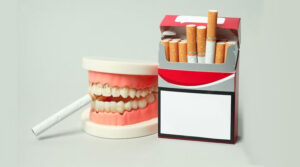The sores that appear in the mouth, known as mouth ulcers can be painful while drinking, eating or brushing your teeth. Mouth ulcers that occur occasionally are generally harmless and vanish on their own. If they last more than 3 weeks or are recurrent, you need to seek medical advice immediately.
Mouth ulcers are divided into following 3 types
- Minor ulcers- This type of ulcers are around 2 to 8mm in diameter and they clear up within 2 weeks.
- Major ulcers- They are bigger and deeper than the minor ones. It can take several weeks to heal and might leave a scar in your mouth.
- Herpetiform ulcers- They are a bunch of dozens of very small sores.
Causes of mouth ulcers
While stress or tissue injury is thought to cause mouth ulcers, the exact cause is still not known. Certain foods that you consume like citrus fruits and vegetables can trigger mouth ulcers or can worsen the condition of mouth. In addition, certain dental appliances and sharp tooth surfaces such as dentures or braces can also cause ulcers.
Underlying health conditions like an impaired immune system, nutritional deficiency and gastrointestinal diseases are the major causes of some of the complex mouth ulcers. The initial stage when you quit smoking, you could develop temporary mouth ulcers.
Certain medications like painkillers, chest medicines and beta-blockers can react to form mouth ulcers.
Symptoms of mouth ulcers
Following are the symptoms of mouth ulcers:
- Painful sores in your mouth, tongue, inside cheek or soft palate.
- Round, white or grey sores in your mouth with a red border or edge.
- Severe fever
- Swollen lymph nodes
- Physical sluggishness
Preventing mouth ulcers
Usually there is no cure for mouth ulcers and they can reoccur but you can reduce its frequency by maintaining good oral hygiene. You can:
- Avoid acidic or spicy foods that irritate your mouth
- Avoid irritation from chewing gum
- Brush with a soft bristled toothbrush
- Floss daily
- Visit your dentist twice a year
You can seek medical advice if you develop:
- Sores that spread
- Unusually large sores
- Long lasting sores (more than 3 weeks)
- Unbearable pain
- Difficulty in drinking fluids
- High fever
Treatments for mouth ulcers
Generally, mouth ulcers heal with time without any medical treatment. It can take up to 2 weeks to recover.
In case of persistent and painful sores, your dentist can prescribe an antimicrobial mouth rinse or corticosteroid ointment. This will lessen your pain and irritation and will kill microorganisms causing infection in mouth.
You can also buy over the counter gels or lozenges that have the anesthetic effect to relieve the irritation of the mouth.





